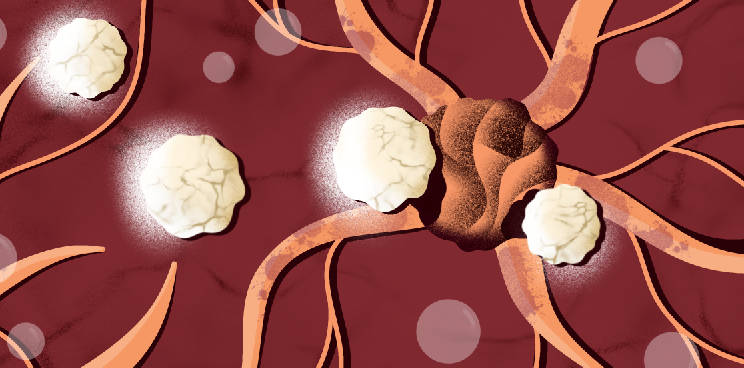New cancer drugs are entering the market every year, but it’s hard to know which patients they benefit the most. The Swiss firm Navignostics is making spatial maps of the tumor’s proteome to identify the right treatment for the patient and boost precision oncology approaches.
A wide range of technologies is being deployed in the fight against cancer, with immunotherapies such as checkpoint inhibitors being one big example. However, there is often limited information available to medical professionals about which cancer patients would respond best to a drug.
According to a startup pitch last year presented by Jana Fischer, CEO of the Swiss startup Navignostics, this lack of guidance can result in failed clinical trials and patients getting suboptimal treatments for their cancer.
“They suffer from failing treatments and having to switch treatment frequently,” added Fischer. “Ineffective treatments are a massive financial health burden for the healthcare system.”
To improve the precision of oncology approaches, clinics often analyze tumor samples by checking for specific drug targets or screening the genome for specific mutations. However, this doesn’t provide direct information about the distribution of target proteins within the tumor.
To tackle this issue, Navignostics was spun out from the University of Zürich in April 2022. The biotech startup aims to boost cancer diagnostics and drug discovery by leveraging spatial single-cell proteomics: technology that lets researchers create a map of proteins expressed in a tumor.
“Like cancer genomics, we can simultaneously measure many different markers, but we do that directly on the level of the proteins,” stated Fischer. She added that the firm can see where the proteins are expressed within the individual cells, and provide spatial context of the tissue.
To obtain maps of a tumor’s proteomic landscape, Navignostics stains samples with more than 40 antibodies seeking particular proteins. The antibodies are labeled with metals, imaged using mass cytometry and used to create a digital image of the tumor’s molecular makeup.
From this image, the company can shed light on the proteins at play, the cell type composition and cell interactions going on in the tumor. With the help of artificial intelligence-guided software, the firm can then recommend which treatment can best shrink the tumor.
Navignostics as a business sprang from clinical studies where the founders’ spatial single-cell proteomics approach was used to guide the treatment of cancer patients.
“Throughout the study, clinicians were so convinced of the data that we decided to come up with a business model in order to be able to provide the clinicians and the patients with this information more broadly in a clinical setting,” said Fischer in her pitch.
Navignostics raised CHF 7.5 million ($8 million) in a seed round in November 2022. With the proceeds, the firm plans to move into its own lab and office facilities and expand its team.
At present, the firm is working with researchers at the University Hospital of Zurich to develop spatial biomarker signatures that can identify the best first-line therapy for patients with metastatic colorectal cancer. Additionally, the company expects to provide drug development services to biotech partners that are developing precision oncology treatments.
Spatial sequencing is an emerging field that offers the ability to not only find out what genes and proteins a tumor is expressing, but also where in the tumor they are. Some of the biggest companies offering transcriptomics in a spatial format include 10X Genomics and NanoString. One up-and-coming player is Resolve Biosciences in Germany, which raised $71 million in a Series B round in October 2022 to bankroll its spatial biology approach.
While spatial transcriptomics has been the focus for spatial biology research, Navignostics forms part of a newer wave of startups offering spatial proteomics. Another is Pixelgen, which launched in 2022 with a seed round worth $6 million. And the U.S. firm AtlasXomics was founded in 2020 to make epigenomic spatial maps of non-coding DNA regions that wouldn’t be visible in proteomic or transcriptomic assays.





